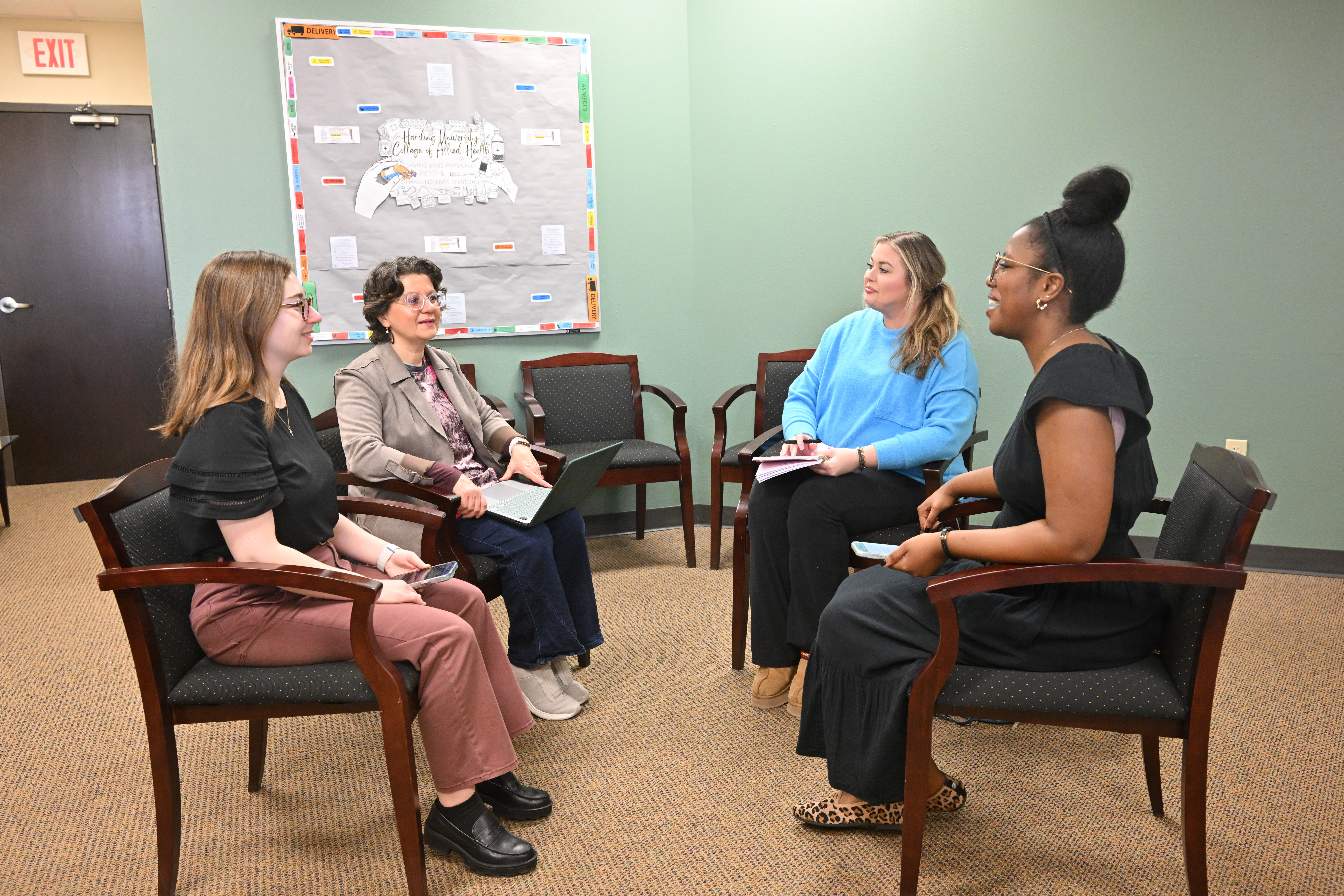
|
| Dr. Lana Gettman meets with her mentee group, Mak Black, Kourtnei Jackson and Arryanna Majekodunmi. |
In November 2023, pharmacy student Jennifer Griffin attended a competitive national rotation at the home office of the National Community Pharmacists Association in Alexandria, Virginia. When her mentor and dean, Dr. Julie Hixson-Wallace, learned Griffin was looking for a place to stay, she reached out to friends in Bethesda, Maryland. Their daughter had recently graduated, and they were not ready to be empty nesters, so they jumped at the chance to welcome Griffin into their home.
Faculty like Hixson-Wallace often leverage their personal and professional networks to help make connections for students — whether they are looking for a job, a place to stay or a new church family. She first met Griffin in a College of Pharmacy mentorship group, and through shared interests like hiking and the outdoors, their friendship has grown.
Every year, as part of the curriculum, pharmacy faculty lead small groups of students from each level who meet weekly to enhance personal and professional growth. Discussions about social awareness and compassion, resilience, leadership development, financial strategies, and time management give students and faculty opportunities to share experiences and improve communication skills while also forging strong bonds.
“I’ve learned that it’s easier to make connections when you intentionally put people together who might otherwise never have met,” Hixson-Wallace said. “We often have more in common than we realize.”
New groups are formed each year so students and faculty can get to know others, and as students move through the program, they play a new role in their group. They may begin by learning from second- and third-year students about how to manage difficult coursework and then pass on their own experiences once they reach their third year.
“Despite the challenge of early Monday morning meetings, we exchanged words of encouragement, discussed insights on projects and exam preparation, and shared many life stories,” Griffin said. “I’m grateful to have developed relationships with other aspiring pharmacists that I may get to work with in the future."
Faculty mentors also benefit from these relationships as they learn more about their students and have the opportunity to intentionally support those who struggle academically, spiritually or relationally.
“Mentorship is a two-way street,” Dr. Lana Gettman said. “As I am helping my mentees and students develop, I am learning from them and growing personally and professionally. It also helps me understand and relate to students. There is a sense of personal and professional satisfaction in mentoring the next generation of pharmacists.”